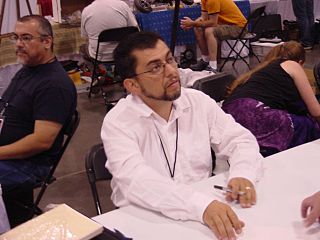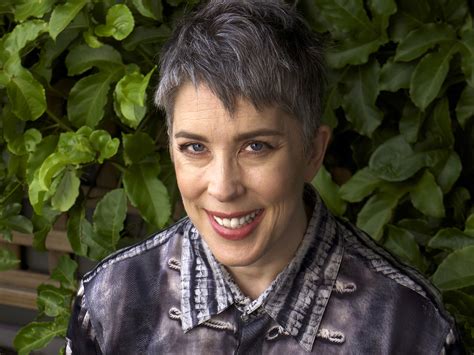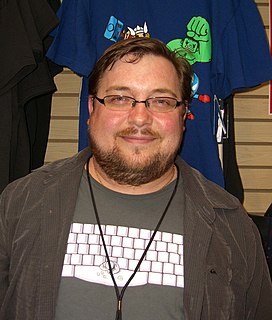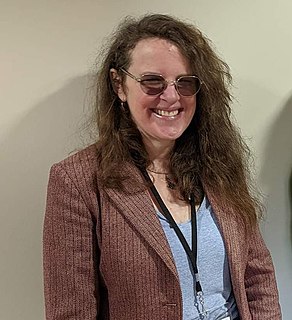A Quote by Paul Dini
There are some short stories in R. Crumb comics that are just wonderful and touch me in ways no other comics do.
Related Quotes
In early comics, you see the amazing awkwardness and bizarre reasoning in the storyline, and it's because comics hadn't really been invented yet. There was no format for them to follow. They were just making it up. So I try to incorporate that kind of awkwardness in my comics quite frequently, which is odd. In some ways, I can't be as awkward as I'd like. But I do think that's one way in which my comics are unusual, because I will try to make the artwork look bad, occasionally.
I never feel there's anything I can't do with comics. There are certain things in comics that you can't do in any other medium: for instance, in Mister Wonderful, Marshall's narration overlaps the events as they're going on. That would be difficult in film; you could blot speech out with a voiceover, but it wouldn't have the same effect. That's always of interest, to see what new things you can do in comics form.
There are a lot of good comics, no doubt, but as far as the quality of the comics goes, I think what you have is a bunch of situational comics - there are black comics that work only black crowds, gay comics that do only gay crowds, and southern comics that only work down South, and so on with Asian, Latino, Indian, midgets, etc. The previous generation's comics were better because they had to make everybody laugh.
I have been a comic book fan nearly all my life. My fascination began as a refuge after my father left because it was within the stories told in comics that I could find heroes who fought for justice and where outcasts or misfits could find purpose and commonality. But over time I have come to love comics as a medium for its ability to tell stories with tremendous depth and emotion that in some ways go beyond what is possible solely with the written word.
I love writing and the little filmmaking I have attempted, but comics is the means of artistic expression that feels most comfortable to me. It's also still a largely uncharted medium with enormous unrealized potential. I like finding new ways to communicate an idea or a feeling, ways that can't be duplicated in other media, so I take great pleasure in the invention and exploration that comics necessitates.
I’ve always thought that if comics are a part of pop culture [then] they should reflect pop culture, but a lot of the time comics, superhero comics especially, just feed on themselves. For me, comics should take from every bit of pop culture that they can; they’ve got the same DNA as music and film and TV and fashion and all of these things.
I quit comics because I got completely sick of it. I was drawing comics all the time and didn't have the time or energy to do anything else. That got to me in the end. I never made enough money from comics to be able to take a break and do something else. Now I just can't stand comics. . . . I wish my work would be recognized by a larger crowd of people as more art than be stuck with the cartoonist label for the rest of my life.






































